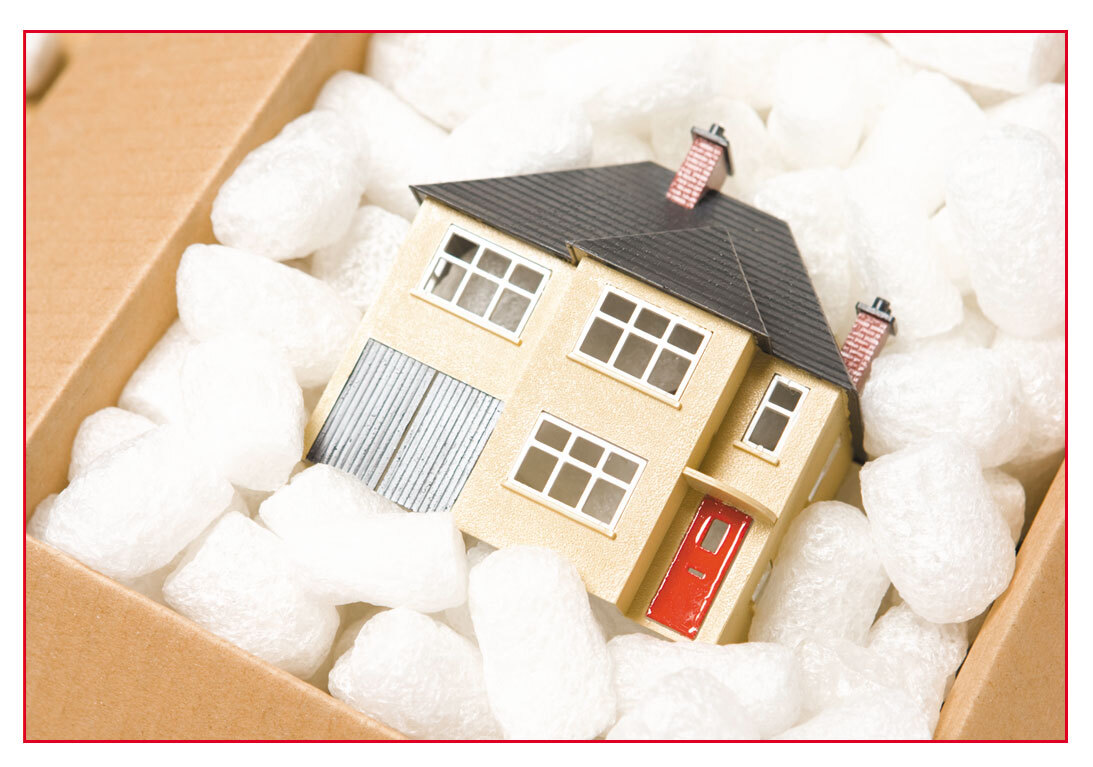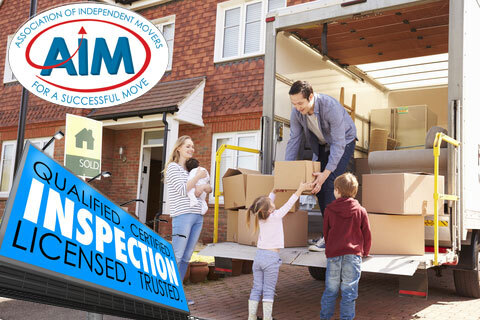- 0208 892 0369
- Contact Us
- Member Login
- Movers - Join AIM Today
This guide is to help you through the process of moving your household goods to your new premises. If there is anything that is not covered by this brief guide or you have questions about your move, you can contact your AIM Mover for advice.
Quotation for Removal ServicesGet quotes as soon as you know you are moving. A quote from an AIM Member is usually valid for 3 months, so it’s wise to get quotes even if you are unsure of your move date. An estimator will visit your property to gather information, so they can give you an accurate quote. They will calculate a price based on the volume of your goods, distance and the work involved in loading and unloading. You will receive your quote in writing, with an acceptance form, Terms and Conditions and details of Insurance. Accepting the Quote Once you have decided to accept a quote, complete the acceptance form and declaration of value of your goods, for insurance purposes. Send the quote back to your mover. This should usually be done when you have a confirmed date, but many movers will take provisional bookings. If you have not given your mover a confirmed date but have returned the acceptance form, follow up when you have the date, to secure your move. Packing Service or Self Pack Your mover can offer a variety of packing options. If you prefer, they can pack everything for you or you may prefer to do the packing yourself. Other options include partial packing of just the fragile items. Ask your mover for advice and information on the packing options available. Packing Materials If you are packing your goods yourself, your mover can provide all the materials you need. Sometimes these materials may be hired, but in either case your mover will be happy to deliver them to you in plenty of time for you to pack. The boxes your mover provides will come in different sizes, so heavier items can be packed into smaller boxes and lighter items, like cushions, duvets and pillows can be packed in larger boxes. Ask your mover for advice on which packing materials are most suitable for your needs. Insurance Your mover should give you all the information you need about your insurance cover. If you need more cover than is offered by your mover, you should contact them in plenty of time for them to increase cover. In all cases, you will need to sign a declaration of the value of your goods when you sign the Acceptance Form that came with your quote. Some items are not covered by the insurance. This is due to the insurer and not the mover, but information of what is covered and what is not covered will form part of the Terms & Conditions that you received with your quote. If in doubt, ask your mover. Freezers and white goods As your moving day approaches, it is a good idea to reduce the amount of food in freezers. Fridges, freezers and other white goods will need to be empty and free of surplus water before they are moved. Unless agreed in writing, your mover will not disconnect washing machines, dryers or dishwashers so have them disconnected and ready to move on the day. Fixtures and fittings All fixtures and fittings that are coming with you should be disconnected and ready to move on the day. As with white goods, your mover may be able to do this, but you will need written confirmation. If it is not part of the work for which you were quoted, it will need to be agreed before the work is carried out. Dismantling Assembling Your mover will be able to dismantle and reassemble furniture only if it is part of your agreement, so get confirmation before the day of your move. Some furniture becomes unstable and almost impossible to reassemble, so your mover may decide not to undertake the work or carry out the work at your own risk. Discuss any dismantling and reassembling needs in advance. Loft – Shed – Garage If you have any items in the loft, they should be taken down before the day of your move. If the loft is adequately floored, your mover may do this for you, but it will need to be agreed before the day. Goods stored in garages and sheds will need to be pointed out to the estimator when he calls to assess the job. It is worth noting that garden equipment, plant pots and furniture can be soiled and may not be suitable for transporting with the rest of your goods. Talk to your mover if this is the case and they will help with a solution. Petrol driven garden equipment should be drained of fuel before moving. Your mover is unlikely to take gas bottles and petrol containers as they will not usually be covered by insurance. Parking and Access Depending on the size of your move, the space needed for parking can vary. Your mover will need enough space to park the vehicle and still have space to load and unload. If necessary, get the relevant parking permits. Your mover can give advice on the size of vehicle and space needed. Day of the Move On the day of the move, make sure you have kept all vital documents, keys, phone charger, medicines etc, which you will need on the day, in a separate box for easy access. This, together with the kettle and tea/coffee cups, etc, should be the last thing loaded and first unloaded. Your mover will load your goods and furniture using appropriate furniture covers and floor protection. They will unload to your new premises and place all your furniture and boxes in the appropriate rooms. If you pack everything yourself, remember to write the destination room on each box. |    |